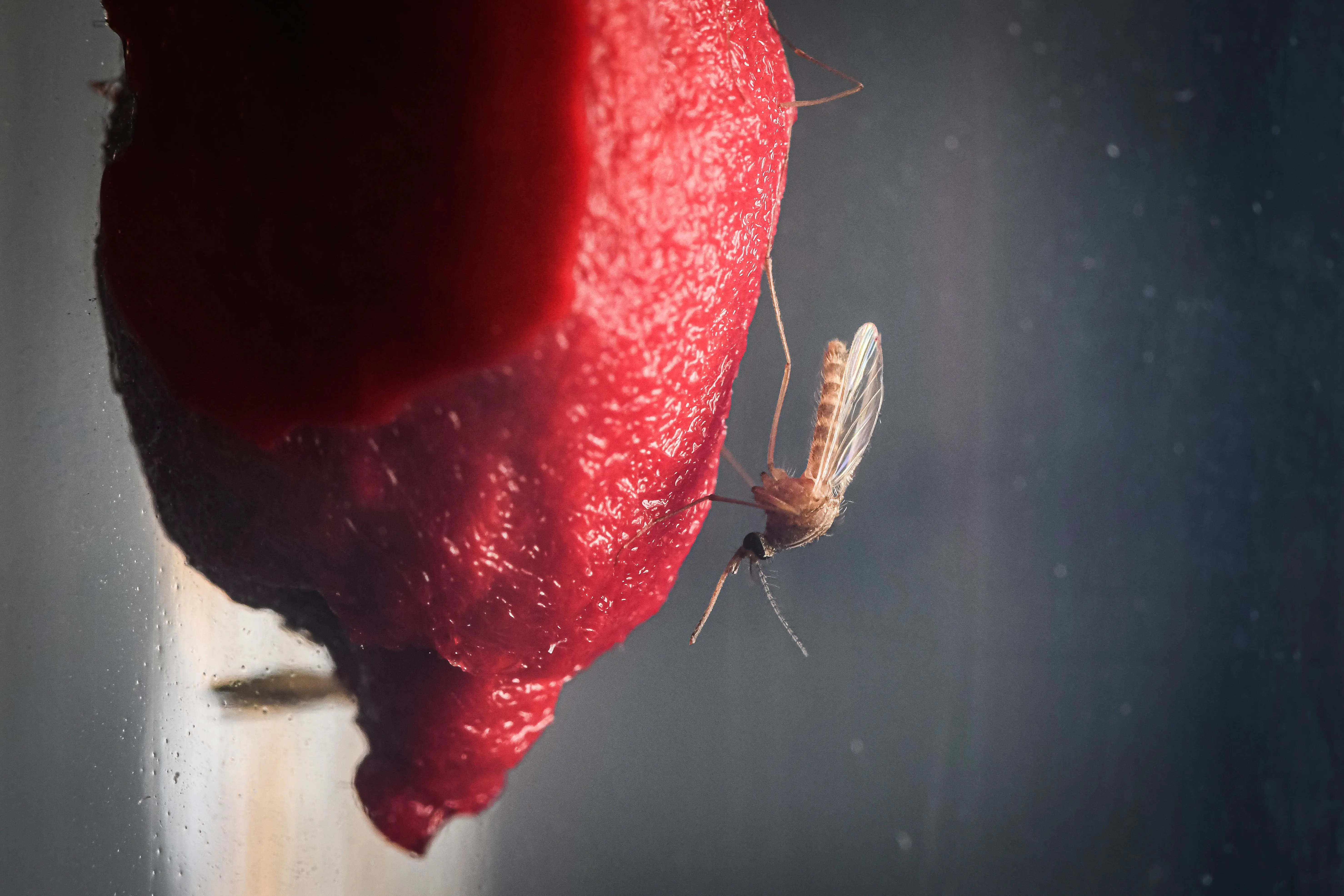Iceland Records mosquitoes for the first time in history as climate warms across the region
-
 GREIFSWALD, GERMANY - DECEMBER 02: An asian tiger mosquito feeds on warm blood from a cotton pad in a laboratory of the Friedrich-Loeffler-Institute, where mosquitos are breeded by scientists on December 02, 2019 in Greifswald, Germany. The Friedrich-Loeffler-Institute is a scientific laboratory specialised on animal epidemics and vector-born diseases. (Photo by Steffen Kugler/Getty Images)
GREIFSWALD, GERMANY - DECEMBER 02: An asian tiger mosquito feeds on warm blood from a cotton pad in a laboratory of the Friedrich-Loeffler-Institute, where mosquitos are breeded by scientists on December 02, 2019 in Greifswald, Germany. The Friedrich-Loeffler-Institute is a scientific laboratory specialised on animal epidemics and vector-born diseases. (Photo by Steffen Kugler/Getty Images)For the first time ever, scientists in Iceland have found mosquitoes living in the country. The discovery has surprised experts, as Iceland has always been one of the few places in the world without them. Researchers say this change is likely linked to warmer temperatures caused by climate change, which are now making the country more livable for insects that could not survive there before.
First confirmed mosquito sighting in Iceland
Scientists from the Icelandic Institute of Natural History recently confirmed the presence of mosquitoes in Reykjavik. Until now, Iceland’s cold weather and short summers had kept the insects away, as they could never complete their life cycle before winter arrived.
Experts say that this discovery shows how the local climate is changing. Even though only a few mosquitoes have been found so far, they seem to be surviving longer and adapting to the milder weather. Researchers are keeping a close watch to see if these insects start to spread to other areas of the country.
Warmer weather is helping mosquitoes survive
For decades, Iceland’s quick change between warm and freezing temperatures made it impossible for mosquitoes to breed. The insect larvae would freeze before becoming adults. But now, with milder winters and longer summers, conditions have become more suitable for their growth.
In recent years, the average temperature in Iceland has been slowly rising. This pattern matches global trends, where northern countries are heating up faster than other parts of the world. The warmer air and longer warm seasons mean insects that once couldn’t live there are now able to stay.
What scientists are saying
Matthías Alfreðsson, an entomologist at the Natural Science Institute of Iceland, confirmed the findings after identifying the insects himself. The specimens were sent to him by a citizen scientist who first spotted them.
He explained,
“Three specimens of Culiseta annulata were found in Kiðafell, Kjós — two females and one male. They were all collected from wine ropes during wine roping aimed at attracting moths.”
This particular species is known for being cold-resistant, capable of surviving Iceland’s harsh winters by sheltering indoors in places such as basements and barns.
The discovery was first made by Björn Hjaltason, who posted about it on the Facebook group Insects in Iceland.
“At dusk on October 16, I caught sight of a strange fly on a red wine ribbon,” he wrote, describing the trap he uses to attract insects. “I immediately suspected what was going on and quickly collected the fly. It was a female.”
He later caught two more and sent them to the Natural Science Institute, where they were formally identified by Alfreðsson.
Possible effects on the environment
Experts say there is no reason to panic for now, as mosquitoes are not expected to cause major health problems in Iceland yet. However, their arrival could change the ecosystem over time. Birds and other small animals might start feeding on them, which could affect the natural balance.
Health officials also said that while the mosquitoes found in Iceland do not carry any diseases, this could change in the future as the planet warms. In many warmer countries, mosquitoes are known to spread diseases like malaria, dengue, and West Nile virus.
A clear sign of climate change
The discovery is seen as another sign that global warming is changing life in even the coldest parts of the world. Areas that were once too cold or isolated are now becoming suitable for new species.
Other northern regions, such as Norway and Greenland, have also reported new insects appearing in recent years. Scientists say these are clear examples of how small temperature increases can have big effects on nature.
What happens next
Researchers in Iceland plan to keep studying the mosquitoes over the next few seasons to see if they can survive through the winter and build a permanent population.
For now, the finding is being treated as an early warning of how climate change is affecting every part of the planet — even remote places like Iceland. A country once thought to be too cold for mosquitoes now joins the growing list of regions experiencing the direct effects of a warming world.